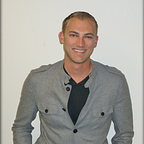The Co-founder that never was
A story of how I recruited my technical Co-founder and why I chose not to recruit someone
The Co-founder that I didn’t recruit
I had a classmate in my graduate program, who is still an incredibly good friend, and was almost the perfect co-founder. I desperately wanted a female co-founder as women and men see the world differently, and having that different perspective is invaluable. She had a great background in digital marketing, which helped fill a skills gap for me. I knew she was disciplined and had a great work ethic as she helped pick up the slack of others during our group projects. She had high emotional intelligence, and she had just gone through the master’s program with me and understood how to start and create a startup. She had 90% the qualities that I was looking for in a co-founder.
Why didn’t I bring her on? Her passion was not entrepreneurship. Spark xyz in its essence is about helping entrepreneurs succeed, and that isn’t what she wanted to do.
I struggled with this for a while. Could I continuously sell her and keep her excited about Spark? Probably for a while, but ultimately, she would have become disinterested in what we were doing, and she would have started down a path of negativity that would eventually cause her to leave the venture.
The first twenty people that you bring into your venture are the most important, and without a solid foundation of leadership, you’re doomed before you even start.
How I found my co-founder
My process deviated slightly from what people do traditionally. I wanted my co-founder to have the same skill level that I did, but in their respective field. So I pondered what I would need if someone came to me with a similar proposition. I would need something tangible, something that could show me that the person starting the venture was serious about it.
My goal was to leverage the MVP to recruit a CTO, but the MVP needed proper code to use as a spring board in order to start building what our true end product would be. So I found a firm that specialized in building out MVP’s, that followed the lean methodology, and we started building.
Now from a personal health standpoint, this was a struggle. I was in school full time, managing the team I just hired, leading a separate team for our venture initiation class (our venture was Spark), doing user testing and customer discovery, and recruiting. When I tell you I was drowning; it isn’t an understatement. It was a period of chaos that culminated in being the protagonist of a case study that was recently released.
I worked 450 hours in a month. I had worked multiple 100 hour weeks before, but I could always stay ahead of the work. With this endeavor, I still felt like I was falling behind; when you’re drowning, you’d take a life preserver from anyone willing to help you.
Staying disciplined in recruiting is dangerously tricky. If I wasn’t in the class “Founder’s Dilemmas,” and we weren’t going through co-founder dilemmas, I would have recruited the wrong co-founder and that would have sent me down a path to venture failure.
In the end, I interviewed twenty separate people, gauging what we will talk about in the next couple of sections. Fortunately I was correct about having a tangible product. The difference it made interviewing people was night and day. I had engineers that were astounded that a person that “handles the business side” got a tech product off the ground without help.
The person I eventually landed on, Abe, was a titan of the industry, having done work for Disney, Riot Games, and a few startups. It wasn’t only his experience that attracted me, but it was his attitude, which gave me the ability to start building the foundation for the culture of our venture.
Lucas is the founder of Spark xyz, platform management software for incubators, accelerators, Angel groups, and VC’s.
